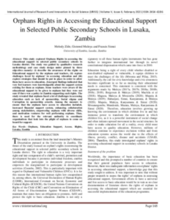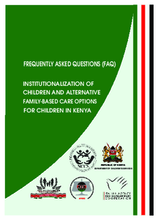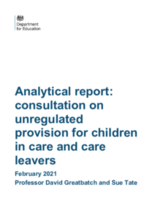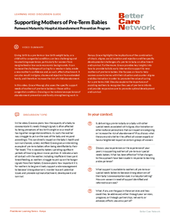Demographic Data
|
Sources: World Bank, UNICEF,UNDP HDR 2015, DHS 2014 |
Displaying 2771 - 2780 of 14348
This rapid review takes stock of emerging research on nurturing care for young children during the COVID-19 crisis.
This study explored Orphans Rights in accessing the educational support in selected public secondary schools in Lusaka district.
This report, produced by the Department of Social Welfare and Ghana Statistical Service with UNICEF support, provides an overview of the main findings from a census of residential care facilities in Ghana, an enumeration of the child population in these facilities, and a survey on a representative sample of such population.
This paper will address one of the most challenging problems in development work which is commonly referred to as the ‘silo mentality’. In this case, this mentality affects how services for typical children are planned and implemented without including the needs of children with disabilities from the first planning step. Strategies are proposed that can help to bridge this gap.
This booklet emphasizes the importance of family based care for the care of orphaned and vulnerable children (OVC) in Kenya, provides answers to regularly asked questions, and lists current government efforts to support OVC, including the policy and legal frameworks and existing forms of family and community-based care.
The Department launched a consultation on the use of independent and semi-independent children's care settings that are not required to register with Ofsted (unregulated provision) as a matter of urgency, ahead of the Government’s anticipated wider care review. This report presents the key findings from an independent analysis of responses to the consultation.
This report offers a blueprint for creating equity-centered, anti-racist policies that support the health and well-being of children and families of color.
This study examined the effectiveness of a two-session preventive parenting intervention, the Parent Check-In. The intervention, grounded in Self-Determination Theory (SDT), is designed to facilitate adaptive parenting, specifically autonomy support, structure and involvement, and parenting efficacy, and to increase autonomous self-regulation and decrease behavior problems in children.
This article offers a critical cultural reading of narratives on family reunification in Haiti in social media and advocacy discourse, revealing how this approach privileges Northern assumptions about proper parenting and family life.
In this video, Grace Mwangi discusses the specific support needs of mothers of pre-term babies or those with a congenital condition.








